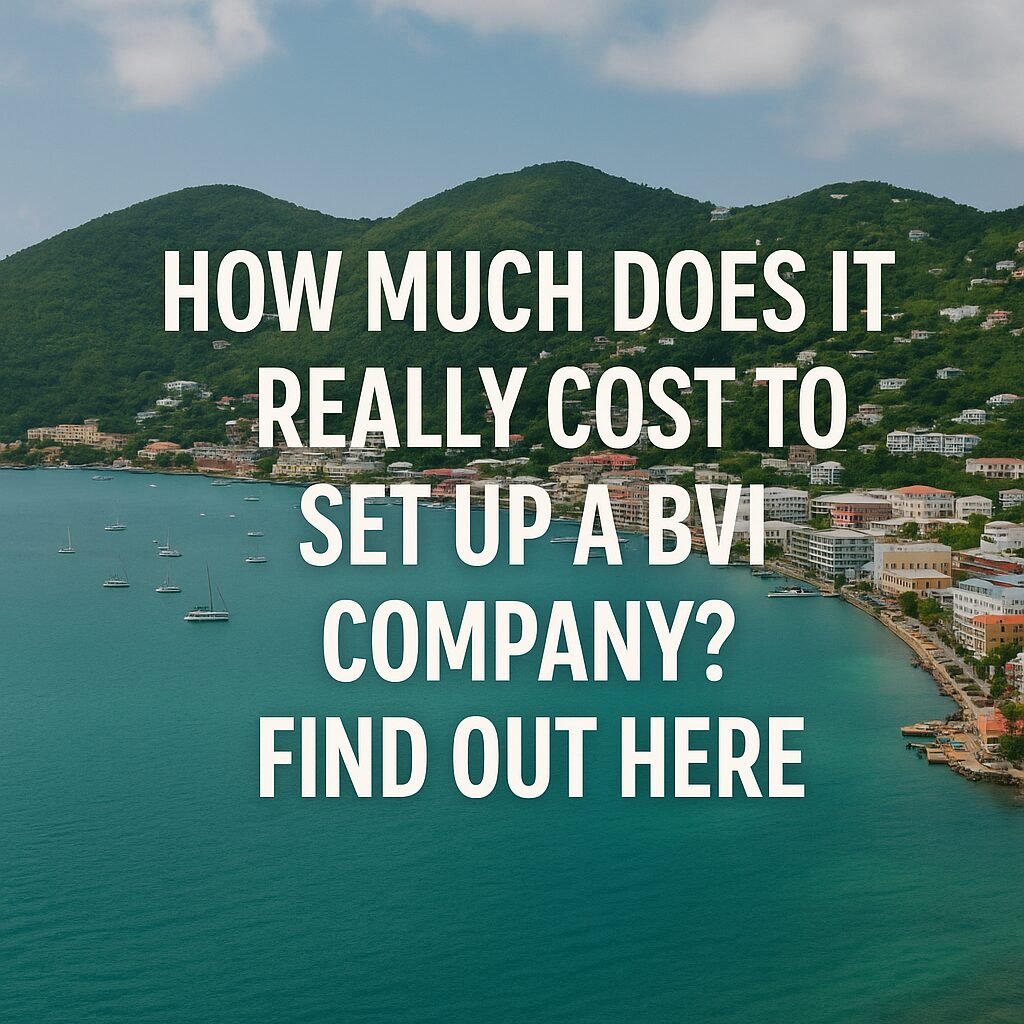Uncover the Secrets of BVI Company Registration: A Comprehensive Guide for Savvy Entrepreneurs
Are you an entrepreneur with a global mindset, seeking new opportunities to expand your business? Have you considered registering a company in the British Virgin Islands (BVI)? With its tax exemptions, confidentiality, and favorable regulatory environment, BVI is an attractive offshore location for businesses looking to establish a presence in a well-respected financial center. In this comprehensive guide, we will uncover the secrets of BVI company registration and provide you with the necessary knowledge and tools to help you take advantage of the opportunities that BVI has to offer.
Table of Contents
Advantages of Registering a Company in BVI
Before diving into the specifics of company registration, it’s important to understand the advantages of registering a company in BVI. These advantages include:
- Tax Exemptions: BVI imposes no corporate tax, income tax, or capital gains tax on BVI Business Companies (BVI BCs) and Limited Partnerships (LPs).
- Confidentiality: The names of company directors, shareholders, and officers are not publicly available, ensuring confidentiality for business owners.
- Favorable Regulatory Environment: BVI has a modern and flexible regulatory framework, making it easy to do business.
- Reputation: BVI is a well-respected offshore financial center, which can enhance the credibility of a company.
Choosing the Right Type of Entity
Choosing the right type of entity is a critical step when registering a company in the British Virgin Islands (BVI). The most common types of entities used in BVI are companies limited by shares, limited partnerships, and trusts. Each type of entity has its own advantages and disadvantages, and the decision of which one to choose should be based on various factors, such as the nature of your business, your tax objectives, and your long-term goals.
Companies limited by shares are the most popular type of entity in BVI, as they offer limited liability for their shareholders, which means that their personal assets are protected from the company’s liabilities. They are also easy to set up and maintain, with minimal reporting requirements and no minimum capital requirements. Companies limited by shares can be further classified into two types: ordinary companies and exempted companies.
Ordinary companies are typically used for domestic operations in BVI, whereas exempted companies are used for international operations and can enjoy significant tax exemptions. Exempted companies can be further categorized into two types: exempted companies with limited duration and exempted companies without limited duration. The former is suitable for short-term projects, while the latter is ideal for long-term business operations.
Limited partnerships, on the other hand, are ideal for joint ventures or investment funds. They are a flexible entity structure that allows for the allocation of profits and losses among partners. However, unlike companies, partners in limited partnerships have unlimited liability, which means that their personal assets are at risk if the partnership incurs liabilities.
Finally, trusts are another popular entity used in BVI, particularly for asset protection and wealth management. A trust is a legal arrangement where a trustee holds assets on behalf of beneficiaries. BVI trusts are known for their confidentiality, as the names of beneficiaries and trustees are not disclosed to the public.
Steps to Register a Company in BVI
Registering a company in the British Virgin Islands (BVI) can be a complex and time-consuming process, especially for those who are not familiar with the local laws and regulations. However, with the right guidance and support, it can be a relatively straightforward process. In this section, we will provide a detailed step-by-step guide on how to register a company in BVI.
Step 1: Choose a name for your company
The first step in registering a company in BVI is to choose a name for your company. The name must be unique and not already in use by another company in BVI. You can check the availability of your chosen name on the BVI Financial Services Commission’s website.
Step 2: Determine the type of entity
The second step is to determine the type of entity you want to register. As discussed earlier, the most common types of entities used in BVI are companies limited by shares, limited partnerships, and trusts. You should choose the type of entity that best suits the nature of your business, your tax objectives, and your long-term goals.
Step 3: Appoint a registered agent
You must appoint a registered agent to act as your representative in BVI. The registered agent will be responsible for handling all legal and administrative matters related to your company in BVI, including receiving legal notices and maintaining your company’s records.
Step 4: Prepare the necessary documents
To register a company in BVI, you will need to prepare the necessary documents, including the Memorandum and Articles of Association, a Business License Application, and a Declaration of Compliance. These documents must be notarized and submitted to the BVI Financial Services Commission.
Step 5: Pay the necessary fees
You will need to pay the necessary fees to register your company in BVI. The fees vary depending on the type of entity you are registering and the services provided by your registered agent.
Step 6: Obtain the necessary licenses and permits
Depending on the nature of your business, you may need to obtain additional licenses and permits to operate in BVI. For example, if you are starting a financial services company, you may need to obtain a license from the BVI Financial Services Commission.
Step 7: Open a bank account
Once your company is registered, you can open a bank account in BVI. You will need to provide the bank with your company’s registration documents, identification documents for the directors and shareholders, and proof of address.
Conclusion
In conclusion, registering a company in the British Virgin Islands can be an excellent way to take advantage of the many benefits that the jurisdiction has to offer, including favorable tax rates, a stable political and economic environment, and a well-established legal system. However, the process can be challenging, especially for those who are not familiar with the local laws and regulations.
By working with a trusted and experienced service provider, you can ensure that your company is registered correctly and in compliance with all relevant laws and regulations. At Worldwide Fellow, we have a team of experts who can guide you through every step of the registration process and provide ongoing support to help your business thrive.
If you are considering registering a company in the British Virgin Islands, contact us today to learn more about how we can help you establish and grow your business in this dynamic and thriving jurisdiction.


